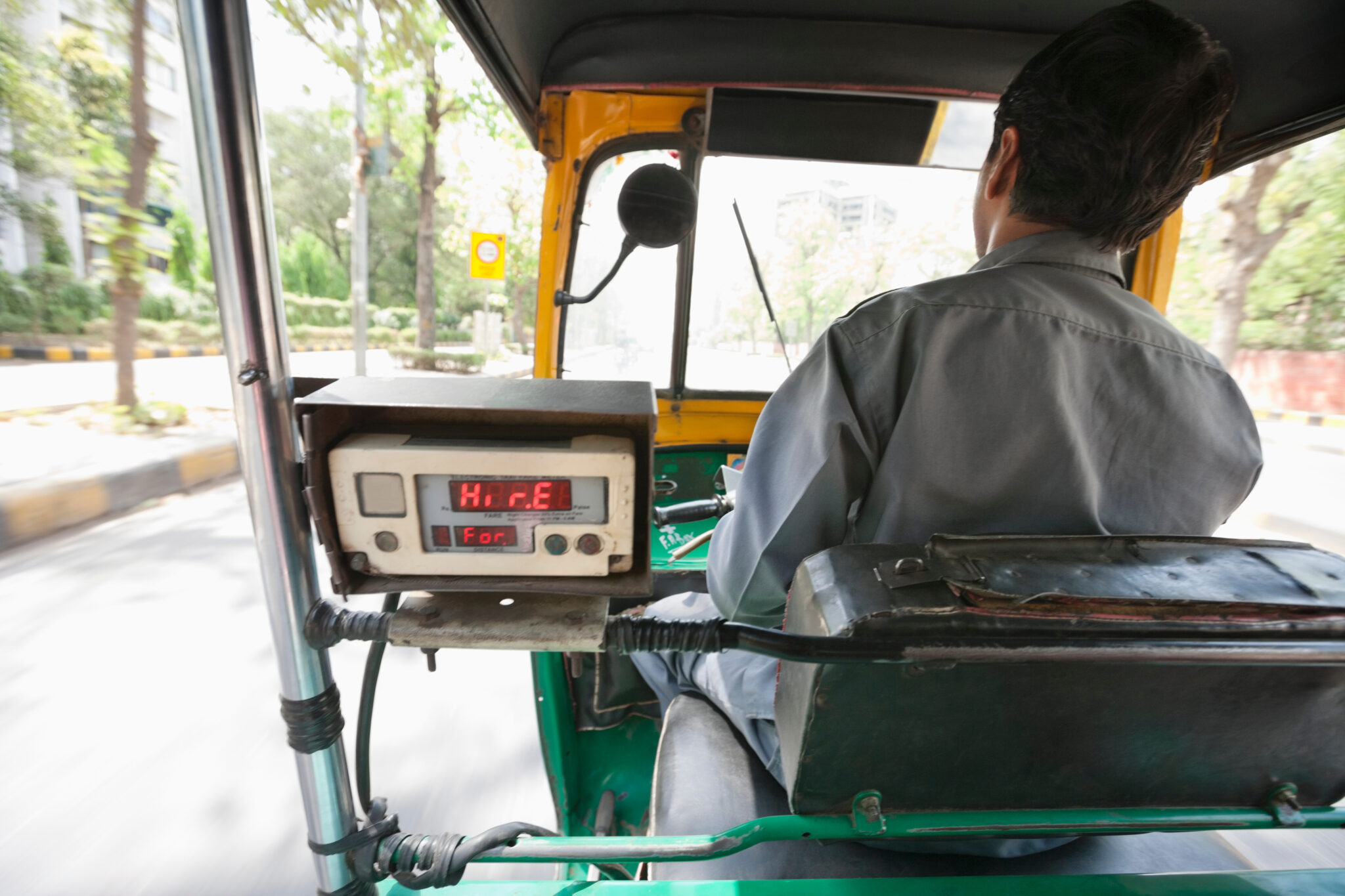Income for Information – Measuring the Value of Time

Back view of an auto rickshaw driver on the street, New Delhi, India. © moodboard – stock.adobe.com
The problem of time constraint is particularly salient for low-income individuals who need to expend more time than their higher income counterparts in managing a basic subsistence. Heavy time constraints affect important decisions, such as whether and how much individuals invest in their education, income-generating activities, training and technologies, their children’s education, household nutrition and health, and the like. This project seeks to understand the significance of time as a constraint for the poor and to provide a direct measure of how individuals in developing regions of the world value time. To do so, researchers utilize an information-task platform on mobile phone networks that both generates income for and collects information on users. Time spent on a task will be matched with the amount of money individuals are willing to receive for that time over large sample sizes and several repeated iterations. A small text-based pilot has been run with study participants in and around Siaya Town in Kenya, and a secondary pilot leveraging the voice component of the system will soon launch with an implementing partner, Uliza. Findings can be used to better design the timing and targeting of social programs. Results forthcoming.

